The 4 Best Mouthwashes Based on Your Oral Health
Did you know that mouthwashes (also known as oral rinses) have been around for centuries?
Ancient Egyptians and Greeks used rinses made from wine and vinegar to freshen their breath and clean their mouths.
But it wasn’t until the 19th century that commercial mouthwashes began to appear on the market, with Listerine being one of the first and most well-known brands.
Today, while there are hundreds of brands of mouthwash, the American Dental Association (ADA) says there are only two main types of mouthwash:
- Cosmetic Mouthwashes: These leave behind a pleasant taste and temporarily control bad breath or whiten teeth. However, they have “no chemical or biological application beyond their temporary benefit. For example, if a product doesn’t kill bacteria associated with bad breath, then its benefit is considered to be solely cosmetic.”
- Therapeutic Mouthwashes: “Have active ingredients intended to help control or reduce conditions like bad breath, gingivitis, plaque, and tooth decay.”
Suffice it to say, you want a therapeutic mouthwash if you really want to see (and feel) a difference in your oral health.
RELATED: THE 4 BEST ELECTRIC TOOTHBRUSHES BASED ON YOUR ORAL HEALTH
Which Mouthwash is Best?
When choosing the best mouthwash for your oral health, it’s important to remember that popularity doesn’t always equal effectiveness.
Just because a particular brand or type of mouthwash is heavily advertised or widely used doesn’t mean it’s the best choice for you and your specific oral health needs.
One of the most common reasons people use mouthwash is to freshen their breath. While many types of mouthwash do a great job of masking bad breath, it’s crucial to find one that addresses the underlying cause of your bad breath.
For example:
- Dry mouth: You’ll want to look for a mouthwash that contains xylitol or other moisturizing agents to help stimulate saliva production.
- Gum disease: Look for a mouthwash that contains fluoride, which can help strengthen tooth enamel and reduce plaque.
- Gingivitis: To combat this early form of gum disease, you’ll want to look for a mouthwash that contains antiseptic ingredients like chlorhexidine, which can help reduce plaque and bacteria.
- Canker sores: Another common reason people use mouthwash. To help soothe canker sores and prevent infection, you’ll want to look for a mouthwash that contains ingredients like benzocaine or fluoride.
- Bad Breath: Find a mouthwash that doesn’t contain alcohol. Alcohol can dry out your mouth and make bad breath worse.
So, the next time you pick up your mouthwash from Target, don’t just go for the brand you recognize. Instead, take a minute to look at the ingredients and consider your oral health condition before making a decision.
Or you can just read this article to know which mouthwash is best for you!
RELATED: TOOTH DECAY: SIGNS, STAGES, AND TREATMENTS
4 Best Mouthwashes Based on Your Oral Health
According to the American Dental Association (ADA), mouthwash is recommended to supplement (not replace) your daily oral hygiene routine.
The frequency of use can vary depending on the type of mouthwash you choose and your oral health needs.
For example, if you’re using a mouthwash to freshen your breath or combat plaque and gingivitis, use it after brushing and flossing. However, you should use fluoride mouthwash at a different time of day than brushing your teeth (such as before bedtime).
If you’re wondering which mouthwash is best for you, it’s always a good idea to consult your dentist. They can help you determine the best type of mouthwash for your specific oral health needs and advise on how often to use it.
For now, here are 4 of the best mouthwashes for dry mouth, bad breath, gingivitis, and canker sores.
RELATED: IS FLUORIDE TOOTHPASTE THE SECRET TO A BETTER SMILE?
Best Mouthwash for Dry Mouth
Ingredients To Look For: Xylitol
Chronic dry mouth is the worst. Dental Health says that
“Current research estimates that around one in four adults suffer from the condition and this number rises to 40% in the over-55s.”
Maybe somewhat surprisingly, mouthwash is one of the most satisfying remedies for dry mouth. And the best mouthwash for dry mouth is, without a doubt, Biotene Dry Mouth Oral Rinse.
This rinse is “specially formulated to provide immediate dry mouth symptom relief that lasts for up to 4 hours while it freshens your breath.”
It’s also alcohol-free, so it can be used multiple times daily!
Best Mouthwash for Bad Breath
Ingredients To Avoid: Alcohol
The Listerine Total Care Zero Anticavity Mouthwash is alcohol-free and ADA-approved, making it perfect for bad breath.
Listerine has so many products that it can be hard to know which one to reach. But if you’re looking to cure your bad breath, remember to
- Avoid alcohol
- Look for the pink bottle!
This rinse has a ton of ingredients that help make your fresh breath look for hours, such as Menthol, Methyl Salicylate, and Thymol.
RELATED: WHAT CAUSES BAD BREATH EVEN AFTER BRUSHING?
Best Mouthwash for Gingivitis
Ingredients To Look For: Chlorhexidine, Fluoride
Gingivitis is the first stage of periodontal (gum) disease. This can be easily reversed by adding the best mouthwash for gingivitis to your daily routine.
The ADA specifically lists the Core Values Antiseptic mouthwash to treat gingivitis. It helps to control the plaque that leads to gingivitis.
However, if you notice burning, painful, or swollen gums after using this, it could be a sign that your gum disease has progressed. I talked to your dentist about your options moving forward.
Best Mouthwash for Canker Sores
Ingredients To Look For: Benzocaine, Fluoride, Hydrogen peroxide
The best mouthwash for canker sores is definitely Orajel Antiseptic Mouth Sore Rinse!
While canker sores can heal on their own in a matter of weeks, they can be frustrating to deal with for that long. To speed up the process, here’s what to do:
- Pour the rinse into the cap until it’s half full
- Swish it in your mouth for 1 minute
- Spit it out
- Use up to 4 times daily.
RELATED: DO YOU HAVE ROTTEN TEETH? SYMPTOMS, PAIN, AND TREATMENT FOR YOUR BAD TEETH

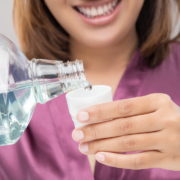
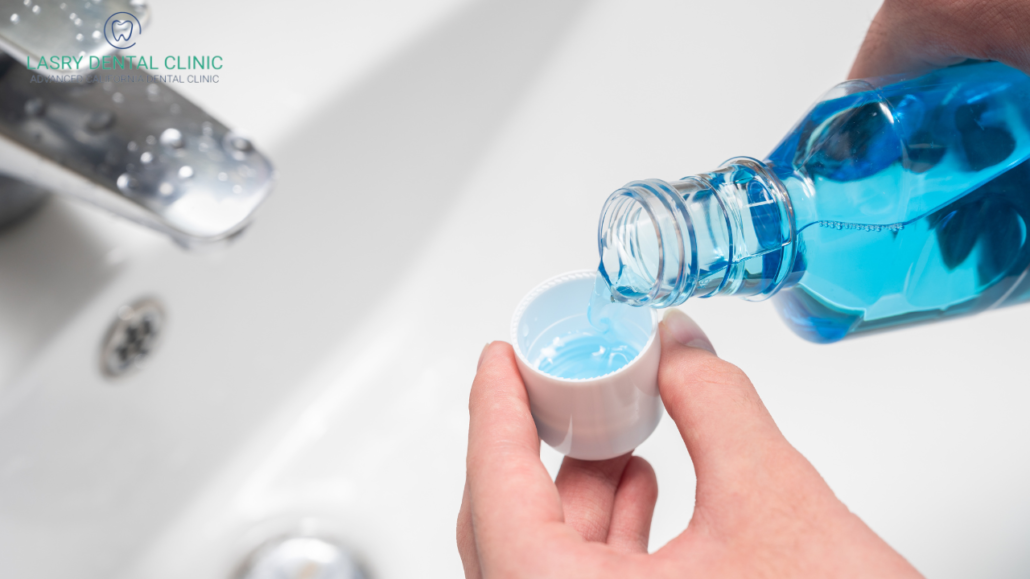
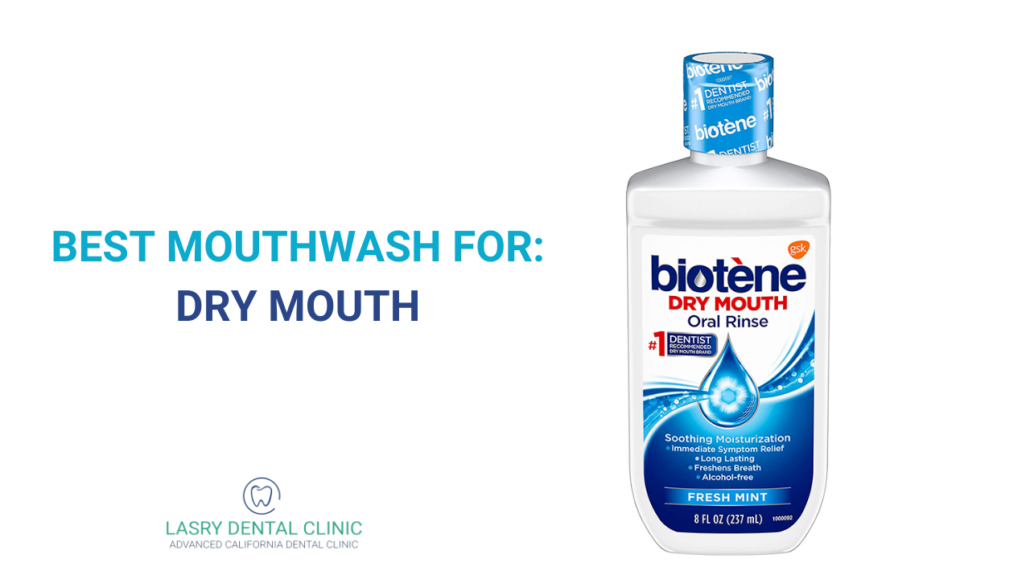
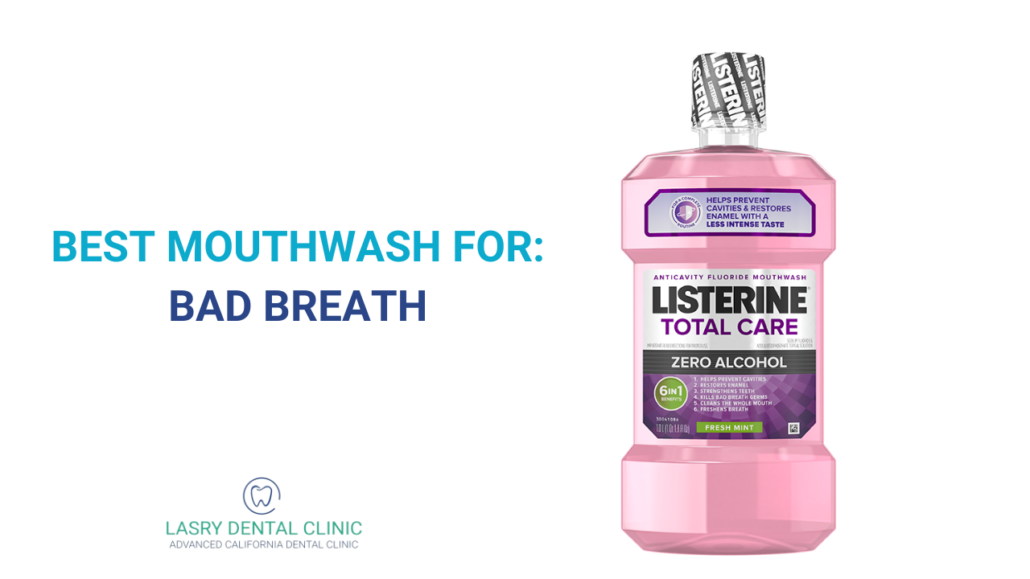

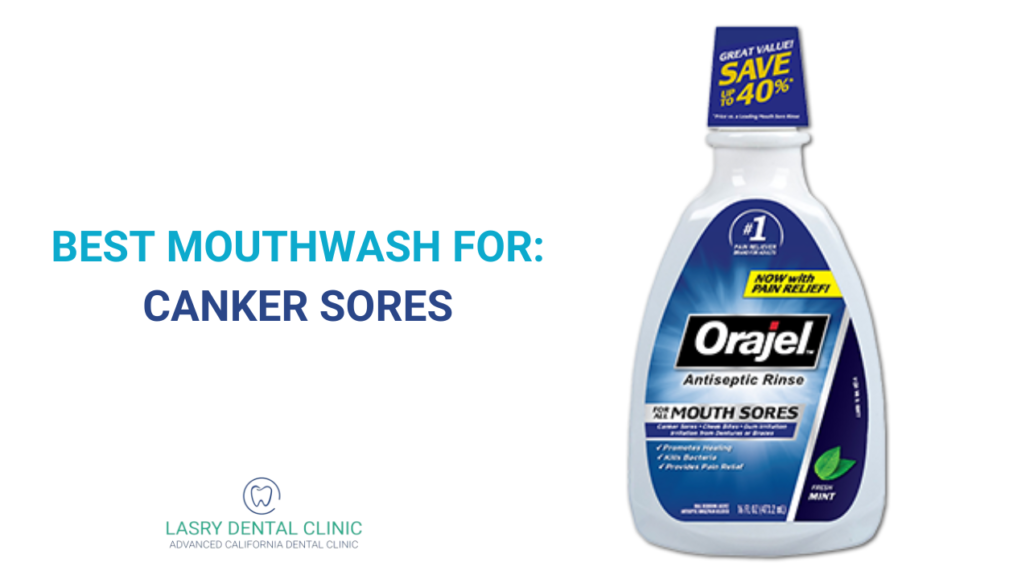


Leave a Reply
Want to join the discussion?Feel free to contribute!